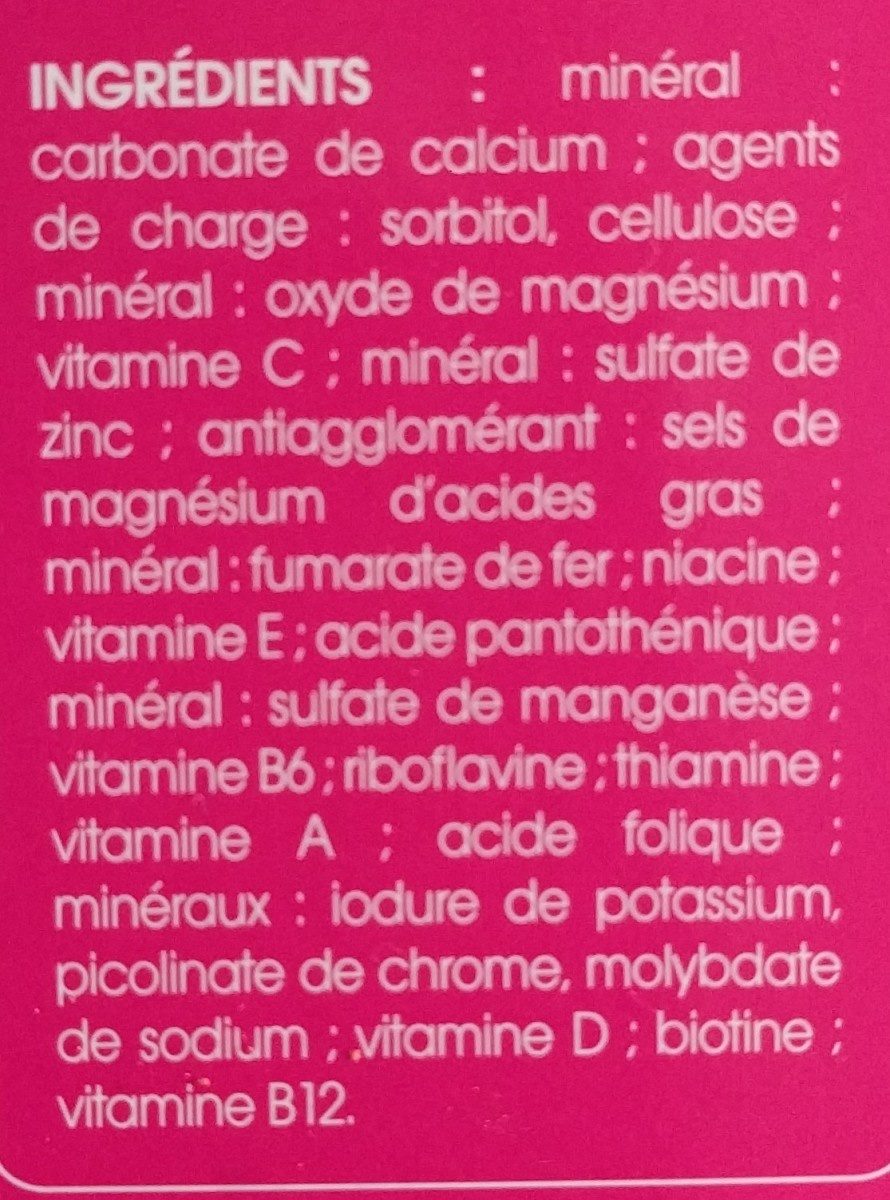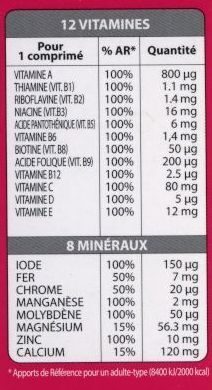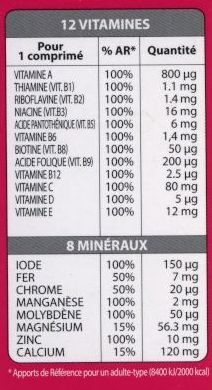12 Vitamines & 8 minéraux - Juvamine - 27,1g (30 comprimés à avaler)
This product page is not complete. You can help to complete it by editing it and adding more data from the photos we have, or by taking more photos using the app for Android or iPhone/iPad. Thank you!
×
Barcode: 3160920651380 (EAN / EAN-13)
Quantity: 27,1g (30 comprimés à avaler)
Packaging: fr:Boite carton
Brands: Juvamine
Categories: Dietary supplements
Manufacturing or processing places: France
Traceability code: EMB 75112W - Paris 12e Arrondissement (Paris, France)
Stores: Géant Casino
Countries where sold: France
Matching with your preferences
Environment
Packaging
Transportation
Report a problem
Data sources
Product added on by kiliweb
Last edit of product page on by packbot.
Product page also edited by berch12, marmotte73, openfoodfacts-contributors, roboto-app, yuka.VEtvZkc1d3EvdGtzbnNZWnpreng4ZWxJN29PQ1hFR2NLdE5PSVE9PQ, yuka.WXBzclNLQXRvTjhPdC9NRDFEM2wxOXR5NEoyc1RYaVlKdXd6SUE9PQ.









